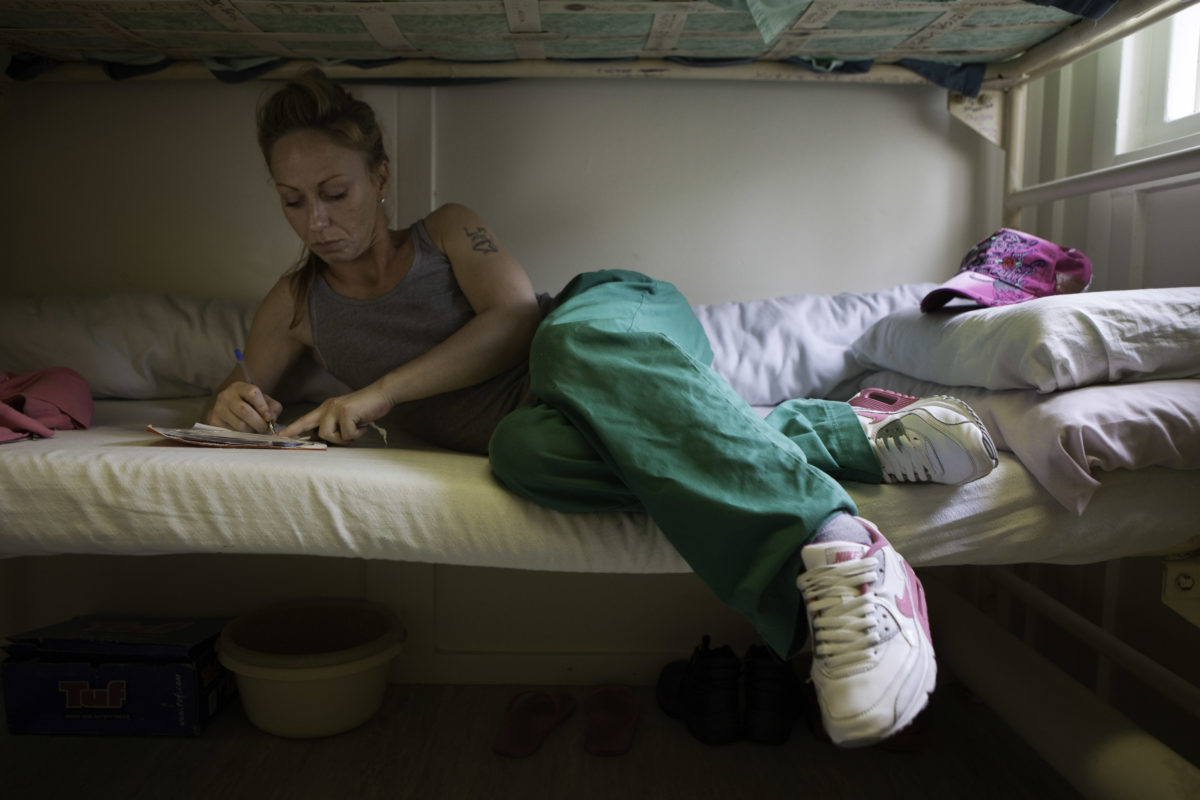From prisoners to pensioners: UK Supreme Court finds direct discrimination in two landmark cases

A young female prisoner writing a letter in her cell. HMp Styal. Pic by Andy Aitchison
In February, the Supreme Court considered two cases where the appellants alleged that they had been subjected to direct discrimination. On the surface, the cases could not have been more different. One concerned a former prisoner challenging a Ministry of Justice policy and the other a pensioner challenging his firm’s pensions policy. In both cases the court found that the appellants had been subjected to direct discrimination. These cases demonstrate of breadth and might of our equality laws, argues Sophie Walker
The Supreme Court in R (Coll) v Secretary of State for Justice [2017] UKSC 40, considered the provision of approved premises (formerly known as bail hostels) for women as compared to men. Prisoners serving life sentences are required to reside at an approved premises following their release on licence. Despite Ms Coll having family and friends in London, she was sent to the closest approved premise near Birmingham. Ms Coll argued that she had being discriminated against, as a man in her position would have been housed in one of the men’s approved premises in London, contrary to s13(1) of the Equality Act 2010.
The second case Walker v Innospec Limited [2017] UKSC 47, concerned the payment of pension benefits to surviving spouses. The appellant had worked for the company for over 20 years and he retired in 2003. After his retirement, he entered into a civil partnership. Innospec Ltd said that in the event that Mr Walker pre-deceased his civil partner, they would not pay the full pension benefit to his partner. Mr Walker argued that he was being discriminated as a heterosexual married couple would be paid the pension benefit.
What makes these cases interesting is that in both, the Supreme Court had ‘an out’: they could have followed the Court of Appeals findings and limited the scope of direct discrimination.
After all, at the time the Appellant in Walker was accruing his pension, the equality directive requiring non-discrimination for lesbians and gay men was not in force and Court of Appeal considered that the directive should not be applied retrospectively. The Supreme Court disagreed: ‘The point of unequal treatment occurs at the time the pension falls to be paid . . . The period during which he acquired that entitlement had nothing whatever to do with its fulfilment.’
The Ministry of Justice in Coll argued that not all women prisoners were placed further away than male prisoners in approved premises. The Court of Appeal considered that was fatal to a claim of direct discrimination that some man had to travel further from home than some women. Lady Justice Hale gave this argument short shrift. ‘In this case all the women who would be required to live in an AP when released suffered the much greater risk than the men that they would be sent to an AP further from their homes and families. The fact that some of them would not suffer this detriment does not mean that those that who do suffer it have not been discriminated against.’
Walker and Coll also demonstrate once again the potency of our equality legislation.
In Walker, the court considered that the exception in the Equality Act’s to the general non-discrimination rule for the payment of pension benefits based on periods of service prior to 2005 was in breach of the EU Directive on equality, known as the Framework Directive. The decision will benefit same-sex couples that accrued pension benefits prior to marriage equality and will ensure that all surviving spouses, whether heterosexual or homosexual, will receive the pension benefit.
Due to Coll, women who serve long periods of incarceration will have a better chance of effective re-settlement as they enter society with the family close to hand. Five years ago, the House of Commons Justice Committee suggested that a greater number of Approved Premises for women be funded so that more female offenders could be safely managed in the community. Despite the political influence of this committee, it took litigation under the Equality Ast to make it a reality.






